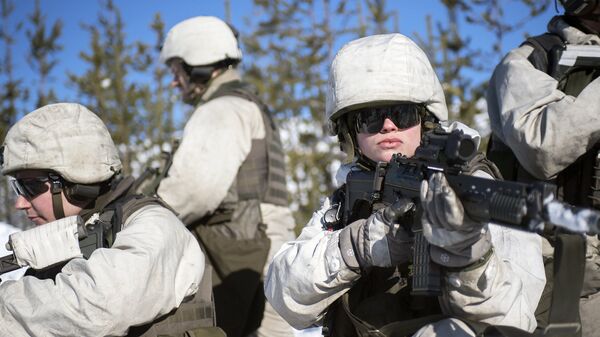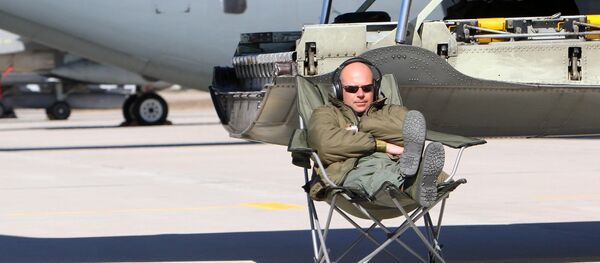Public opinion regarding Swedish membership in NATO is now divided into three almost equal parts, according to a new survey by the newspaper Dagens Nyheter and pollster Ipsos. Some 35 percent of Swedes believed their country shouldn't apply for NATO membership, 33 percent answered "yes", and 32 percent were unsure.
The share of NATO opponents sunk by three percent, while the proportion of NATO supporters increased by just as much compared with a previous survey conducted just over a year ago.
"This is the third survey in a row where the share of those who oppose applying for NATO membership is decreasing. This means that for the first time since we started measuring, it weighs evenly between supporters and opponents of NATO membership", Nicklas Källebring, opinion analyst at Ipsos, told Dagens Nyheter.
Meanwhile, a renewed debate on NATO accession is brewing in Swedish politics. Whereas the centre-right bloc joined by the national-conservative Sweden Democrats, following a surprising U-turn, demand a so-called "NATO option" in the country's security policy, the ruling Social Democrats see no benefits in doing so and remain firmly opposed.
In her recent speech at the digital conference Nation and Defence, Social Democrat Foreign Minister Ann Linde warned that political divisions create uncertainty about Sweden's security policy. Linde earlier stressed it is the government that establishes the country's security policy line and that a NATO option is irrelevant even if a parliamentary majority demands it.
Linde emphasised that security policy must be long-term, predictable, and characterised by continuity.
"Sweden has therefore so far made security policy decisions in a broad consensus", Linde told national broadcaster SVT, stressing that abrupt changes risk creating speculations, which is "not in Sweden's interest".
By contrast, liberal-conservative Moderate Party leader Ulf Kristersson argued that a NATO option is a "completely logical consequence" of Sweden's increasing collaboration with NATO and various NATO countries, including the US.
"It is the government that is now creating uncertainty about Sweden's security policy line by living with its phantom pains from the time of neutrality", Kristersson said, emphasising that the Social Democrats "have no eternal veto right" on this issue.
In recent years, Sweden has been edging closer to NATO through various collaborations and joint military drills. This spurred a group of researchers at Gothenburg University, the Chalmers University of Technology, and the National Defence College to contest that non-alignment and increased military cooperation are an "impossible combination".
The researchers emphasised that after the end of the Cold War Sweden effectively abandoned its policy of neutrality in favour of non-alignment. Neutrality, however, remains an important part of Sweden's self-image, even if this policy has been formally abandoned. The increasingly close relationship with NATO is difficult to reconcile with the self-perception of neutrality, non-alignment, and generally being a global "force for good", as the Swedish public has historically regarded NATO as a symbol of militarism, incitement to war, and nuclear weapons, the researchers argued.





